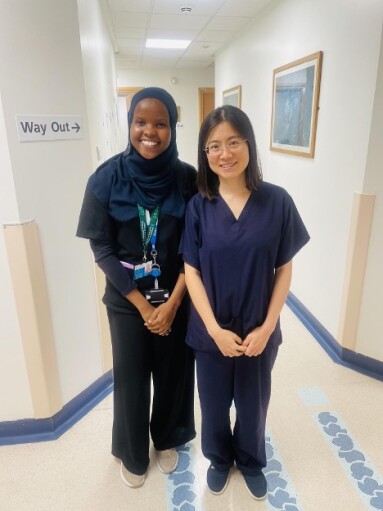My Cambridge Electives Experience: Growth, Learning and Inspiration
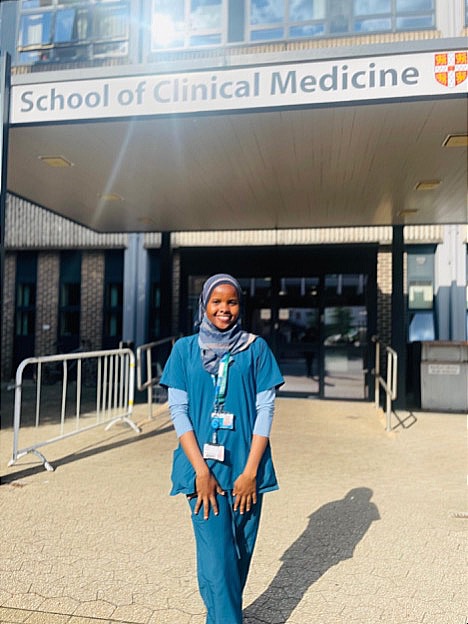
By Swabrah Masaba Halimah
On 20th June 2025, I boarded the Uganda Airlines flight from Entebbe to London Gatwick. My heart was brimming with anticipation for I was headed for what would become a defining chapter in my medical training—a clinical electives attachment at the University of Cambridge. A place I'd only known through textbooks, online lectures, and the impressive footsteps of Makerere students who had walked its historic halls before me.
As a medical student at Makerere University, the opportunity to undertake such an electives placement was more than a dream. It was a portal into learning and practicing medicine. This opportunity, made possible through the Cambridge-Africa collaboration, wasn’t just a student exchange—it was a journey into the heart of a global academic community, where knowledge transcends borders and partnerships shape the future of health.
First Impressions
The beauty of Cambridge immediately left me in awe—the mix of centuries-old colleges, the serene River Cam, and the diverse student population created a great atmosphere. But what stood out even more was the kindness of the people.
Clinical Attachments: Learning in Oncology and Haematology Clinics
As I settled in, I quickly realised that learning here wasn’t confined to textbooks or whiteboards. Every corridor, every conversation, every clinic was an opportunity to grow.
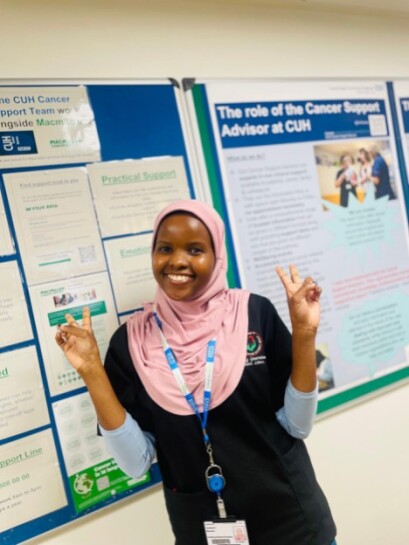
Swabrah in the department of haematology.
My clinical placement focused on haematology and oncology, two fields close to my heart as a future practitioner in Uganda, where the burden of cancer and blood disorders continues to grow amidst limited resources. At Addenbrooke’s Hospital, I witnessed what is possible with robust health systems, interdisciplinary collaboration, and research-driven care.
From observing bone marrow biopsies to joining multidisciplinary team meetings, I saw how detail-oriented, empathetic care improves outcomes. The deliberate pace, emphasis on teamwork, and time dedicated to patients were values I hope to carry back home. One memorable moment was shadowing a breast cancer follow-up clinic focused on survivorship care—a model that could inspire improvements in long-term care in Uganda.
Swabrah with Dr Huiqi Yang
Reflections
Coming from Mulago Hospital, where the clinical burden is heavy and resources often stretched, the contrast in clinical settings was striking—but not disheartening. Instead, it was motivating. It affirmed the importance of building bridges between our institutions—not only for knowledge exchange but for fostering solutions tailored to our contexts. This became a springboard for ideas. I often thought, “How might this work in our setting? What can be adapted?” I found myself scribbling ideas in a notebook—notes not just about clinical knowledge, but about systems.
Beyond the Hospital Walls
Cambridge life isn’t all clinics and case discussions. From library sessions, punting on the River Cam and touring London I soaked in a culture that values balance between excellence and well-being. Weekends also gave me time to explore nearby towns, enjoy afternoon punting, and share meals with students from across the world. I also connected with fellow Ugandans in Cambridge, attending the CRUK summer school who reminded me that I’m part of a growing network of scholars representing the continent on global platforms.
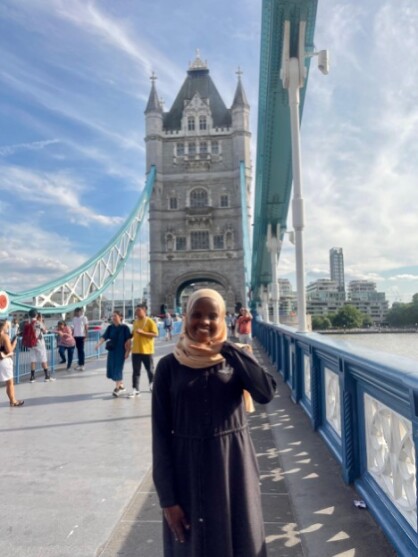
With Gratitude
I am sincerely grateful to the Cambridge-Africa Programme for generously funding and coordinating this placement, covering all key expenses and ensuring that I had a smooth stay. My special thanks go to Corinna Alberg for her exceptional support and guidance throughout, and to Alice Bridgwater, Evelyn Brealey, and the teams at Cambridge Global Health Partnerships and the School of Clinical Medicine for their warm welcome and assistance.
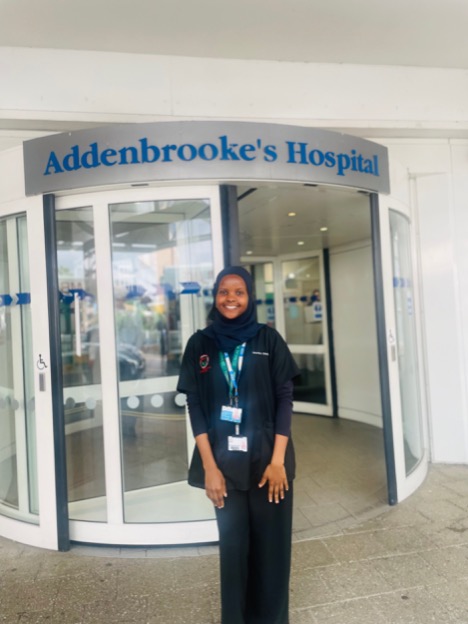
I am equally thankful to the College of Health Sciences, Makerere University, especially Dr. Kaddu Mark Mukasa, and Mrs. Suzan Byekwaso, for facilitating my participation in this program. Deep appreciation goes to Dr. Martin Besser and the Haematology and Oncology team at Addenbrooke’s Hospital for their invaluable teaching, with special thanks to Dr. Emmy Dickens and Dr. Huiqi Yang for their mentorship in paediatric haematology and oncology. Lastly, I remain deeply thankful to my family for their unwavering love and support throughout this journey.
Looking Ahead
As I return to Uganda, I take with me more than clinical knowledge. I return with a renewed since of purpose and belief that our healthcare systems can improve through sustained learning, collaboration and innovation. I found myself reflecting deeply on the kind of doctor I want to become—someone rooted in community yet informed by global standards; someone who sees patients not just as cases, but as whole people with stories, fears, and hope. As I prepare for the next chapter—whether that is final year rotations, internship and future practice in Uganda, —I carry with me a renewed sense of purpose and a commitment to equity in healthcare.
To the next student from Makerere, reading this and wondering if it’s worth it: it absolutely is.


